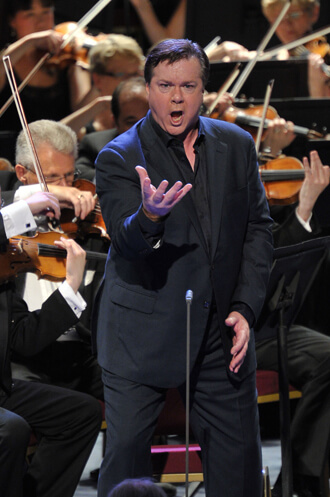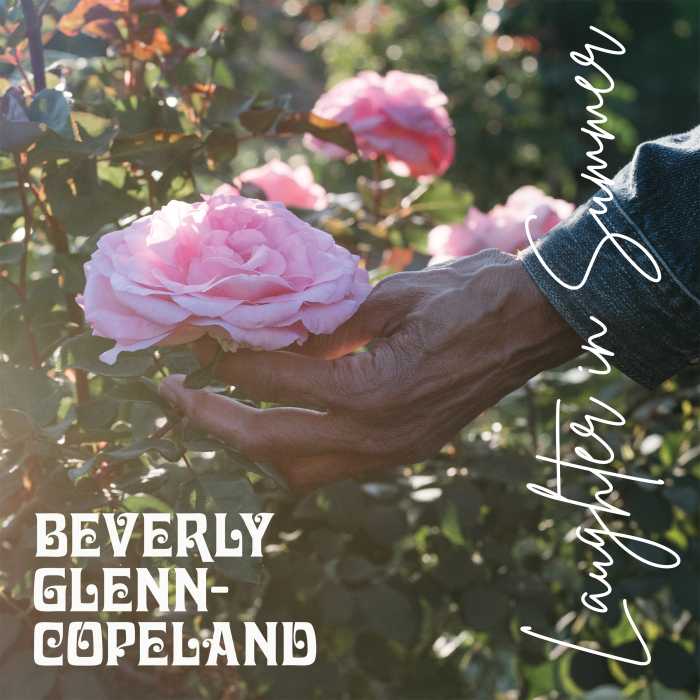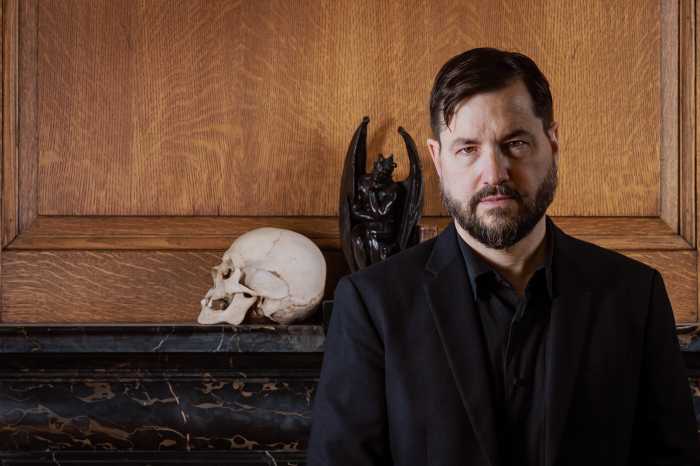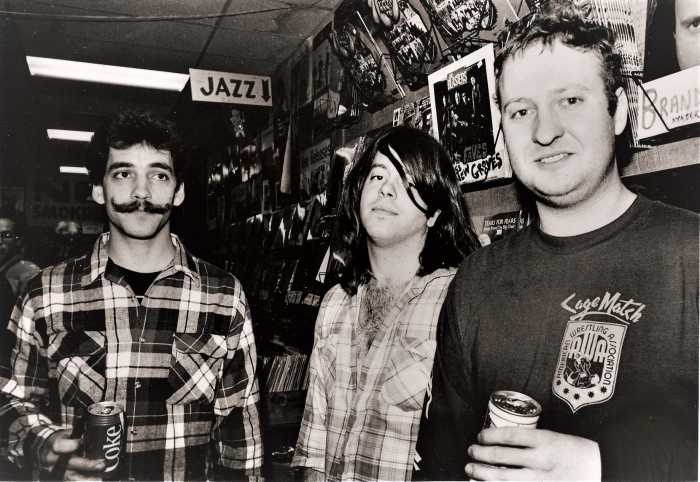Robert Dean Smith in the title role of Washington Concert Opera’s production of Strauss’ “Guntram.” | CONCERTOPERA.ORG
On February 27, a good-sized crowd heard Washington National Opera “Dialogues of the Carmelites,” the company’s first attempt at Poulenc’s riveting dramatic study. Francesca Zambello’s production played quite well in Hildegard Bechtler’s sensibly spare sets, though the deployment of dress extras out of “Les Miz,” increasingly frequent these days, sapped concentration in the score’s often ravishing transition passages. I’ve seen “Dialogues” stagings featuring a greater sense of community and religiosity, but Zambello fostered a fine rapport among the six principal Carmelite characters, a group worthy of any international stage.
In good voice despite announced indisposition, Dolora Zajick (Croissy) needed more verbal specificity in her first scene with Blanche — the superb, elegant Layla Claire, vocally unbettered in my experience of the role and a terrific, classy actress — but Zajick rose to considerable heights in her harrowing death scene. Elizabeth Bishop handled Marie’s demanding range with aplomb and dynamic variety; she’d deepened the portrayal since essaying it at the Met in 2013, just as Ashley Emerson’s largely crystalline and appealing Constance advanced on her St. Louis effort last summer. Leah Crocetto sang Lidoine forthrightly and admirably, without quite mustering the radiant, effortless floating top notes. Sheila Nadler’s experience and still-valid vocalization movingly anchored Jeanne.
Despite strong casting — Shawn Mathey (Chevalier) and Alan Held (Marquis) — the tricky first scene, at the de la Force home, seemed to elude conductor Antony Walker. It took some time into the evening for Walker’s orchestra to supply convincing rhythm support for the characters’ utterances. Solo instruments — used by Poulenc in haunting echo of Mussorgsky’s historical operas — were, however, consistently eloquent.
Vocal treats in Washington and New York
Walker seemed more firmly in his element two nights later, when his own Washington Concert Opera — which performs at Lisner Auditorium — earned gratitude and ovations with Richard Strauss’ first opera, “Guntram,” only the second professional performance the 1894 work has received in this country. The orchestra played beautifully from the first bars of the “Lohengrin”-like Prelude, with welcome special eloquence from the woodwinds and brass sections as well as the solo cello and violin.
The cast was remarkable. Robert Dean Smith proved anew his skill and dependability in long, arduous Heldentenor roles: even in Strauss’ revised 1940 version, the title character sings all night, with challengingly low tessitura punctuated by high passages. Smith started rather matter-of-factly but rose to something like eloquence, not least in Guntram’s beautifully scored final peroration. Marjorie Owens, who made a successful Met debut as a one-off Aida in January, was even better here as Freihild, the soaring part Strauss wrote for his soprano fiancée. Owens has the radiance and freedom at the top to confront Strauss’ music with pleasing abandon; her tenure at Dresden has made her conversant and expressive in the idiom. Major American companies should be hiring her forthwith.
The two low-voiced Dukes, old and young, were in capable hands: remarkably steady veteran Tom Fox and up-and-coming Zachary Nelson. Wei Wu skillfully wielded a jet-black, commanding bass as Friedhold, Guntram’s would-be preceptor, earning himself an ovation among the many that greeted this exceptional event.
March 5 at Tully witnessed a fascinating recital of French music by the deservedly sought-after Anna Caterina Antonacci and her frequent pianist, Donald Sulzen. Antonacci’s soprano is not in itself so exceptional as to timbre and the top gets rather narrow, but she’s one of today’s great singing actresses and diseuses, with Gallic music a particular strength. Debussy, Duparc, and Poulenc songs all got subtle, persuasive readings, and Ravel’s striking “Kaddisch” really seared. Berlioz’ sublime “Mort d’Ophelie,” while insightful, needed more float than Antonacci has to give; but some local orchestra — why not the Met’s? — should invite her at once to do the same composer’s “Mort de Cleopatre,” a stunning early cantata that’s among her calling cards.
Poulenc’s monodrama “La voix humaine” followed the intermission. Between Poulenc and Jean Cocteau, on whose play it’s based, a gay sensibility permeates this work, so remote from the texting era. In suitable period nightdress and coat, Antonacci gave a brilliant, nuanced performance, working an orange phone and every other verbal, musical, and theatrical device superbly. I don’t expect to see it surpassed.
Another consistently compelling artist, mezzo Sasha Cooke sang a fine Carnegie/ Zankel recital March 12 alongside the welcomely omnipresent Julius Drake. Cooke might have spared us Haydn’s “Arianna a Naxos”; agents and presenters should advise singers that this cantata has been way overperformed locally in recent years. Cooke was duly musicianly, but Italian doesn’t showcase her at her most expressive, and she sometimes edged into top notes rather hard and flat.
Much more on point vocally and emotionally were four obscure Liszt lieder and Mahler’s “Wayfarer Songs,” of which the elegiac “Die zwei blauen Augen” proved very affecting. After intermission the industry-heavy crowd heard the world première of the song cycle “Of All the Moons” by Pulitzer-winning Kevin Puts, whose intriguing opera “The Manchurian Candidate” just bowed successfully at Minnesota Opera. The songs set five evanescently imagistic poems by Marie Howe. Puts here wed neo-Romantic, Barberesque vocal lines with a more angular, rhythm-driven piano part, supplying richer melodic material than he gave to some of the opera’s characters.
Both musicians brought to bear tonal clarity and expressiveness; the songs made a good impression, especially the haunting final two numbers. A spirited Granados foursome — again, home ground — and some Cole Porter encores ended a worthwhile evening, “a genuine recital” as one friend observed.
On March 18, Carnegie Mainstage presented a fun evening devoted exclusively to bel canto, ending with spirit the season-long projects curated by Joyce diDonato. The intention and commitment she described in her recent master classes were evident from her very first phrase; she sang several bang-up numbers from “Stella di Napoli,” her latest CD, and joined Laura Claycomb — a capable, experienced if not especially distinctive coloratura, bravely jumping in for an indisposed Nicole Cabell — in the wonderful duet from Bellini’s “Capuleti”, a work in which diDonato shines and should be heard in New York.
Lawrence Brownlee, her longtime colleague and friend, sang wonderful nuance and lyricism in two Donizetti arias. His voice, attractive at all dynamics, sounds terrific in the Carnegie acoustics. The inevitable encore was the great trio from “Le comte Ory,” turned with style and a love of restrained sound that all three singers share. Maurizio Benini provided knowing support with a terrific back-up band — no less than the Philadelphia Orchestra, its strings lavishing sheen onto the non-sung passages.
David Shengold (shengold@yahoo.com) writes about opera for many venues.





































